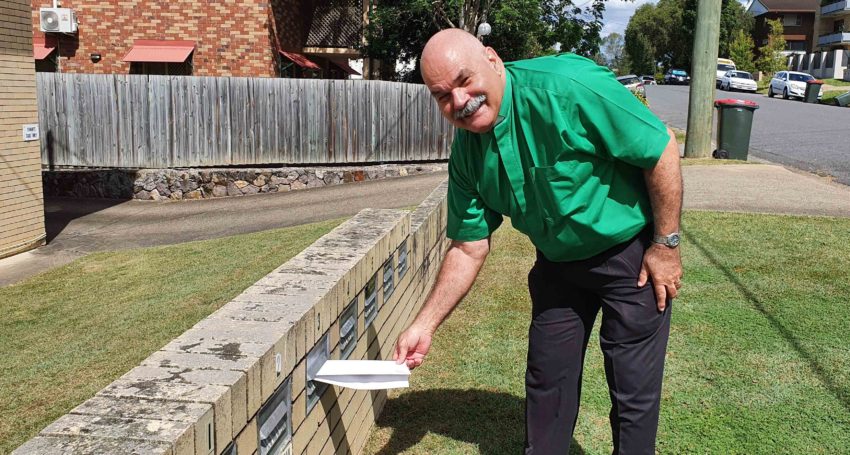Traditional Owners: leaders
Features
“One of the things that I do remember from my childhood and schooling was that there was no separation of the non-Indigenous and First Nations students at school. What that meant is that I was used to being a leader and spokesperson for all the school students,” says priest and Wakka Wakka man The Rev’d Canon Bruce Boase

Story Timeline
What is a Traditional Owner?
Growing up as I did in a small community, it now seems strange to me that I never considered myself to be an Aboriginal person. The little that I knew was whispered about. My nanna was of Aboriginal descent, I was told. My education was at the local state school. Without boasting I was usually in the top three of the class. That meant that when the time came for leadership in any of the school activities other than sport, as I was no good at sport, the lot fell to me.
Advertisement
This involved making speeches on parades, being chairperson of project clubs and welcoming special guests to the school. One of my old school friends reminisces that if there had to be a speech made at school, then they always asked Bruce Boase to do it. Everyone else was relieved. I never said ‘no’ and probably still don’t. There was not too much authority in this because I was just doing what I was told.
Leadership was thus thrust upon me from an early age. One of the things that I do remember from my childhood and schooling was that there was no separation of the non-Indigenous and First Nations students at school. What that meant is that I was used to being a leader and spokesperson for all the school students.
As I grew into adulthood, the opportunity to lead came in the form of work as a manager. I was chosen as a sort of example by the corporation I worked for. They used my image for recruitment of Aboriginal and Torres Strait Islander peoples. This taught me about authority and the responsibility that comes with it. The community also called me to lead in the Lions Club and the Church. I was also a leader in a student Aboriginal Support Program at my sons’ school. The growth here was the learning that decisions had to be made and responsibility had to be accepted.
Advertisement
But it was God who called me to my current leadership experience. God called me to the priesthood. I remember being interviewed by Bishop John Noble before I began the formation process. He asked me if I saw my ministry in a parish or in Aboriginal ministry. I was definite in that I felt my call was to parish ministry. Here I am now, almost 20 years on and I am still in parish ministry.
For the Anglican Church Southern Queensland, I have been called to a certain leadership in the First Nations space. I say ‘certain’ because my contribution as a leader in the Aboriginal community is via the Anglican Church, primarily as Co-Chair of the Reconciliation Action Plan Working Group. As such, this gives me the chance to work with gifted and enthusiastic First Nations and Torres Strait Islander peoples, as well as volunteers, staff and clergy from diverse backgrounds. I am also a member of the National Aboriginal And Torres Strait Islander Anglican Council (NATSIAC) and have served in the leadership team of this organisation.
God still calls me to do what I can. Lead? I am never sure if I do. Authority? That is all God’s.





